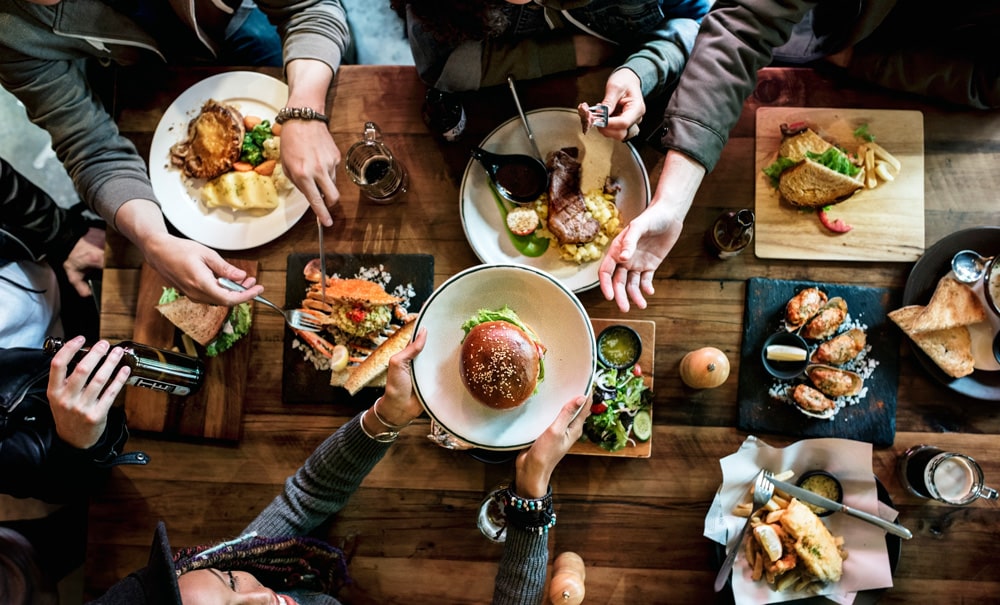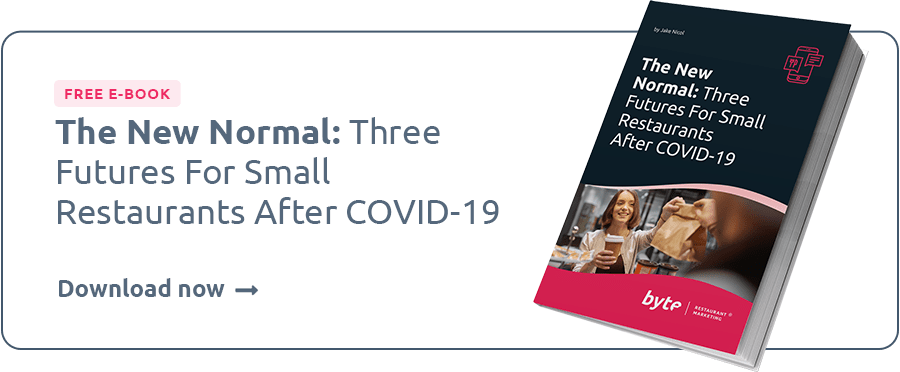How a healthy dose of community could help small restaurants back to fitness in the future
Small and independent restaurants may be in a precarious position. But the Coronavirus has also stoked genuine community spirit across the country. People want a more locally orientated, ‘people first’ approach to business. And small and independent restaurants are in the perfect position to give it to them.
Nobody wants their local McDonald’s to represent the community
The Coronavirus has woken people up to how their behaviour impacts the vast network of people around them: for the first time in many people’s lives, where they go and what they consume is an ethical question. And that will inevitably put pressure on businesses to do the same ethical soul searching.
Consider how you source your food: half of all food consumed in the UK comes from overseas, with 30% coming from the EU. As supply chains stall and international trade becomes more difficult, this will have to change. And you can make that work to your advantage.
Yelp’s Coronavirus Impact Report has found consumers urgently want to source their food more locally: the popularity of community-supported agriculture has grown a remarkable 430%, and support for local farming has more than doubled.
Many big hospitality chains have already shown their hands by mistreating their staff during the early stages of the pandemic, and the idea that simply ‘supporting local farmers’ can win back public opinion is frankly laughable.
We already know that 73% of people would prefer to patronise a small business rather than a large corporation, and 36% of people are willing to spend more on the products or services of local small businesses. Plus people are less likely to ghost on a reservation if they feel loyal to the business.
So you have the capacity to totally re-orientate your business, and make it an authentically community-driven operation which people support because they love what you represent.

Supporting the community means embracing health
Food preferences were already shifting considerably towards healthier, more natural and more ethical ways of eating – COVID-19 is simply speeding up that process. People will now begin reducing meat consumption not just for ethical or environmental reasons, but because they fear it as a contaminant.
The US Centres for Disease Control and Prevention suggests that more than 75% of emerging infectious diseases originate in animals. Add to that the likely increase in the cost of meat as new food regulations and import sanctions come into play, and you’re likely to see a big shift in dietary habits.
But beyond that, COVID-19 will spike interest in healthier eating more generally: we know that weight problems increase individuals’ risks from the virus, and western diets have become shockingly unhealthy given our economic means.
Even before the epidemic:
65% of consumers reported that they were proactively trying to lead a healthier lifestyle.
52% of people wanted to reduce their sugar intake, and 51% wanted to increase their consumption of fruit and veg.
In the coming years, we will be more aware of our health, more conscious of what we put into our bodies and more careful about which businesses we support.
Combining these trends – towards community orientation and healthier eating – might well be your recipe for survival going forward.
You might start initiatives to help local children eat more healthily; you could offer cooking and nutrition lessons to parents; you might encourage healthier eating through specific promotions or menu alterations; you could partner with local farmers and help sell their produce.

The intimacy of small and independent restaurants will be a strength: even if big chains were to embrace this trend, it simply wouldn’t be as convincing.
The important thing will be authenticity: you need to make patrons feel they’re getting something different, something more transparent and honest. And that will involve genuinely doing things differently and being more transparent.
When things go back to ‘normal’, the public will judge businesses based on how they responded to the crisis. So if you’re going to take this approach, you’ll need to start as soon as you can.
Here are three things you can start doing right now:
Reaching out to customers and make it clear you care
This might be through your existing email list, social media presence or simply through some creative street signage. A simple, honest message of solidarity is enough to keep your business in people’s minds
Connecting with local community organisations
Create connections and find ways in which you can support each other. This might involve providing food for key workers or vulnerable people; it might simply be giving local people advice on recipes and cooking.
Rethinking your supply chain
Seriously consider where you can source food and what you could do with it. Now is a great time to be trying to reinvigorate your menu, add more diverse dishes and adapt your offering to changing dietary habits.
You’re reading an excerpt from our latest white paper: The New Normal: Three Futures for Small Restaurants After COVID-19. If you’d like to read more, please click here to download the full paper!